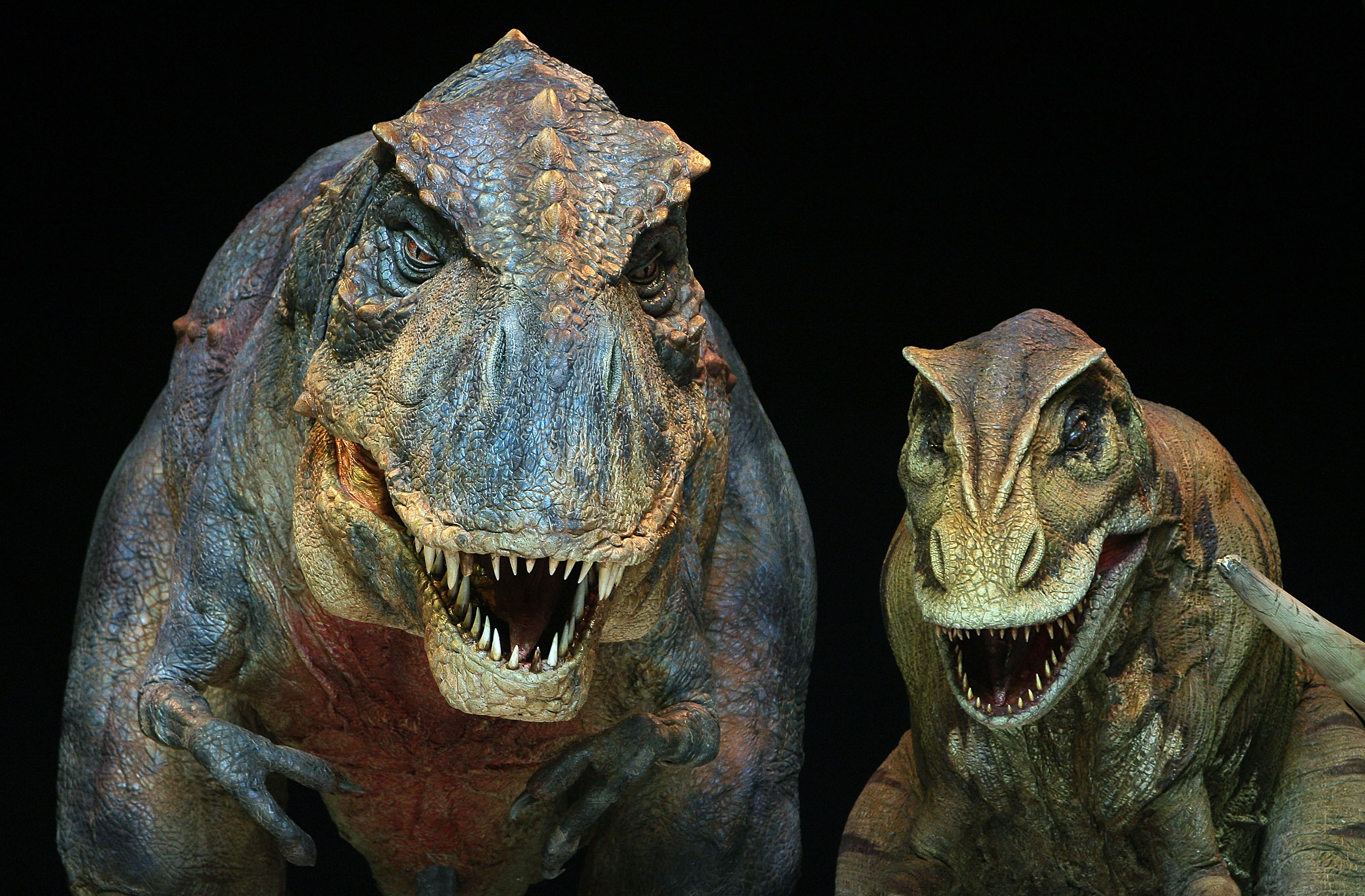Study suggests dinosaurs were high on psychedelic fungus


A free daily email with the biggest news stories of the day – and the best features from TheWeek.com
You are now subscribed
Your newsletter sign-up was successful
Researchers at Oregon State University have a surprising new theory about dinosaurs: They may have eaten psychedelic fungi.
The study, published in the journal Paleodiversity, suggests that dinosaurs got high from ergot, a green parasite that has mind-altering — and sometimes poisonous — effects on animals.
Researchers began looking into the theory when a German paleontologist found the earliest fossil evidence of grass — and the preserved spikelet contains what appears to be ergot. The amber fossil, found in Myanmar, dates to about 100 million years ago, and it "establishes for sure that grasses were in the Old World 100 million years ago," study author George Poinar, Jr. told Live Science.
The Week
Escape your echo chamber. Get the facts behind the news, plus analysis from multiple perspectives.

Sign up for The Week's Free Newsletters
From our morning news briefing to a weekly Good News Newsletter, get the best of The Week delivered directly to your inbox.
From our morning news briefing to a weekly Good News Newsletter, get the best of The Week delivered directly to your inbox.
The fossil supports a growing amount of evidence that grasses existed at the same time as the dinosaurs did — previously, scientists believed that grasses evolved after the dinosaurs were extinct. Poinar believes grasses date as far back as the early Cretaceous period and may have even existed during the Jurassic period.
Scientists don't know when the ergot fungus first attacked grass, but Poinar says the fossil "indicates that psychedelic compounds were present back in the Cretaceous." He believes that dinosaurs definitely ate the grass, though he told Vice that "whether dinosaurs would have gotten dizzy, nauseous, or were otherwise affected is difficult to say."
A free daily email with the biggest news stories of the day – and the best features from TheWeek.com
Meghan DeMaria is a staff writer at TheWeek.com. She has previously worked for USA Today and Marie Claire.
-
 Political cartoons for February 16
Political cartoons for February 16Cartoons Monday’s political cartoons include President's Day, a valentine from the Epstein files, and more
-
 Regent Hong Kong: a tranquil haven with a prime waterfront spot
Regent Hong Kong: a tranquil haven with a prime waterfront spotThe Week Recommends The trendy hotel recently underwent an extensive two-year revamp
-
 The problem with diagnosing profound autism
The problem with diagnosing profound autismThe Explainer Experts are reconsidering the idea of autism as a spectrum, which could impact diagnoses and policy making for the condition
-
 Nobody seems surprised Wagner's Prigozhin died under suspicious circumstances
Nobody seems surprised Wagner's Prigozhin died under suspicious circumstancesSpeed Read
-
 Western mountain climbers allegedly left Pakistani porter to die on K2
Western mountain climbers allegedly left Pakistani porter to die on K2Speed Read
-
 'Circular saw blades' divide controversial Rio Grande buoys installed by Texas governor
'Circular saw blades' divide controversial Rio Grande buoys installed by Texas governorSpeed Read
-
 Los Angeles city workers stage 1-day walkout over labor conditions
Los Angeles city workers stage 1-day walkout over labor conditionsSpeed Read
-
 Mega Millions jackpot climbs to an estimated $1.55 billion
Mega Millions jackpot climbs to an estimated $1.55 billionSpeed Read
-
 Bangladesh dealing with worst dengue fever outbreak on record
Bangladesh dealing with worst dengue fever outbreak on recordSpeed Read
-
 Glacial outburst flooding in Juneau destroys homes
Glacial outburst flooding in Juneau destroys homesSpeed Read
-
 Scotland seeking 'monster hunters' to search for fabled Loch Ness creature
Scotland seeking 'monster hunters' to search for fabled Loch Ness creatureSpeed Read
